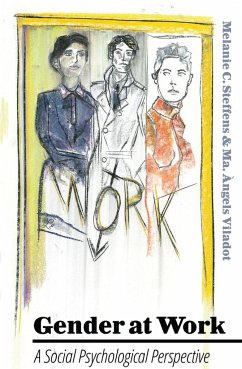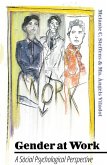While many women receive equal education, such equality is nowhere in sight when it comes to women's and men's career success: men still earn significantly more than women and are more likely to be promoted. In this book, the authors offer a state of the art review of applied social-psychological research on gender at work, shedding light on all the different ways that work-related perceptions, attributions, outcomes, and the like differ for women and men. Focusing on domains (e.g., engineering) and positions (e.g., leadership) that are marked by women's underrepresentation, the first part of the book looks at gender at work in terms of stereotypes, attitudes, and social roles, including parenthood, while the second part takes a social identity and communication perspective, exploring the situations in which men and women interact at work. Many chapters focus on applied questions, such as career choice, effects of role models, and sexual harassment at work. Theories and findings are applied to these topics, with conclusions and recommendations drawn throughout the book.
Bitte wählen Sie Ihr Anliegen aus.
Rechnungen
Retourenschein anfordern
Bestellstatus
Storno








